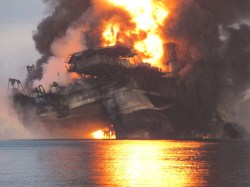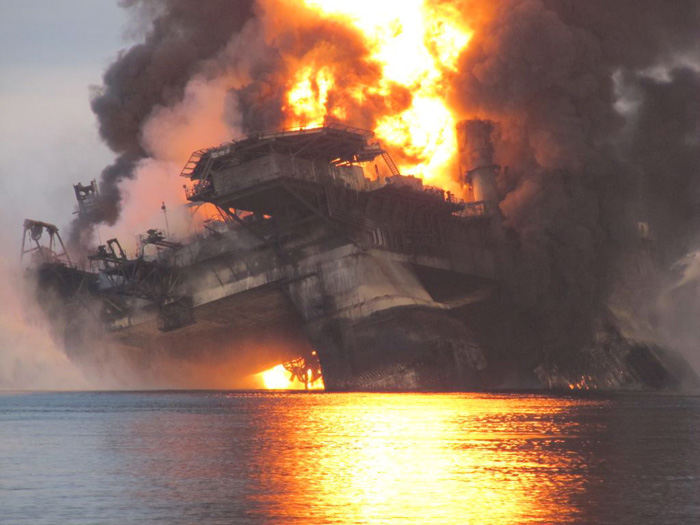
Both a representative image and a metaphor.
Three years ago, Harvard Law professor Lawrence Lessig wrote an essay for The New Republic, “Against Transparency.” His argument was an uncommon one: Political transparency is not an unalloyed good. His core argument is well articulated here:
[R]esponses to information are inseparable from their interests, desires, resources, cognitive capacities, and social contexts. Owing to these and other factors, people may ignore information, or misunderstand it, or misuse it. Whether and how new information is used to further public objectives depends upon its incorporation into complex chains of comprehension, action, and response.
I am not a Harvard Law professor, so I will paraphrase the movie Spider-Man (Tobey Maguire version): With great amounts of information comes great opportunity for abuse.
We’ve all been in arguments during which our opponent cites a tangential piece of evidence as an indication that our entire point of view is wrong. This is, in part, Lessig’s point: legitimate debate getting mired in the ceaseless citation of trivia in an effort to call a debate a draw. Or, worse, that random information could be weakly strung together to imply wrongdoing. (It’s the stock-in-trade of Glenn Beck: minor links between unrelated things that give the appearance of conspiracies and nefariousness.) The bigger the pool of data you swim around in, the easier those links are to draw.
The legal profession’s version of this is the discovery process. All pertinent evidence is shared between sides; arguments are culled. The more evidence they have at their fingertips, the more they can build — or demolish — a case.
In 2010, British Petroleum asked two Woods Hole Oceanographic Institute scientists to assist in determining the rate at which the pipe severed by the Deepwater Horizon explosion was pumping oil into the Gulf of Mexico. They determined that amount to be about 57,000 barrels a day. The more that spilled, of course, the more that BP is liable. So, last week, the company subpoenaed the scientists’ private emails to prepare for a lawsuit against the government.
The scientists wrote an essay for the Boston Globe:
BP claimed that it needed to better understand our findings because billions of dollars in fines are potentially at stake. So we produced more than 50,000 pages of documents, raw data, reports, and algorithms used in our research — everything BP would need to analyze and confirm our findings. But BP still demanded access to our private communications. Our concern is not simply invasion of privacy, but the erosion of the scientific deliberative process.
Deliberation is an integral part of the scientific method that has existed for more than 2,000 years; e-mail is the 21st century medium by which these deliberations now often occur. During this process, researchers challenge each other and hone ideas. In reviewing our private documents, BP will probably find e-mail correspondence showing that during the course of our analysis, we hit dead-ends; that we remained skeptical and pushed one another to analyze data from various perspectives; that we discovered weaknesses in our methods (if only to find ways to make them stronger); or that we modified our course, especially when we received new information that provided additional insight and caused us to re-examine hypotheses and methods.
Their argument, in essence: BP can use our private deliberations to weaken our ultimate conclusions. And with billions of dollars hanging in the balance, that’s undoubtedly exactly what BP’s legal team intends to do: suss out instances in which the debate focused on different numbers and cite those as the examples that should be used. The scenario strongly echoes the infamous “Climategate” debacle which seems only now to be wrapping up. Emails stolen from university researchers were cherry-picked to present evidence contrary to established climate science. Sadly, it worked, further muddying the already gray waters of debate on global warming.
In nearly any debate, you can point to an instance that makes an argument counter to the weight of evidence. But it’s that weight — and its sources, and its derivatives — that are the desired outcome of rational deliberation. The scientists from Woods Hole applied that understood goal to their work for British Petroleum. BP, being motivated otherwise, seems prepared to use that intellectual rigor and honesty against them.



